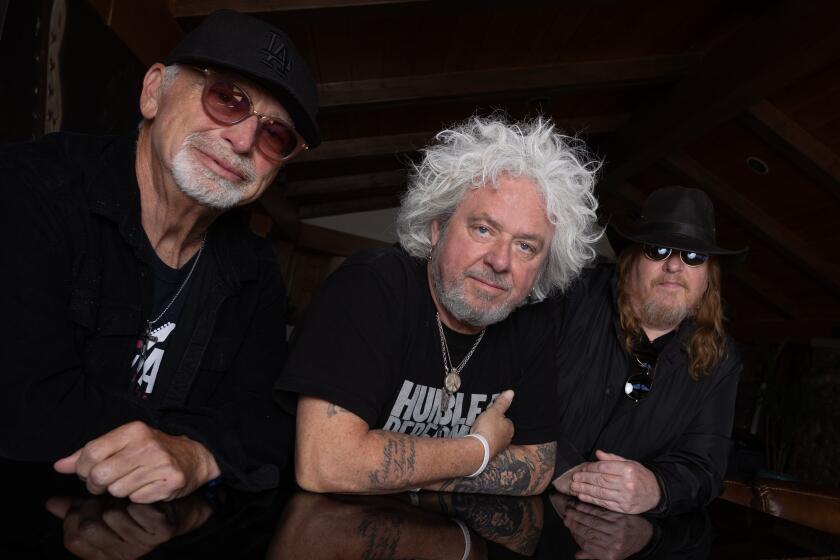A new tune
After five years and about 35,000 lawsuits, the major record companies have ended their prodigious litigation campaign against music fans who shared songs online without the labels’ permission. It’s a welcome step for many reasons, not the least of which being that the suits were eroding the public’s support for copyrights in general. But as the Recording Industry Assn. of America, or RIAA, shifts to a less bare-knuckle approach to enforcing its rights, we hope it also will work harder to profit from an activity it can’t seem to kill.
The major labels -- Universal Music Group, Sony BMG Music Entertainment, Warner Music Group and EMI Group -- have been playing catch-up online almost since the MP3 format was developed. First they sued the start-ups that were distributing file-sharing software, only to see new ones emerge to replace them. In 2003, they went after individual file-sharers, stopping the growth of music sharing but not the slide in CD sales and overall music revenue.
The suits were a blunt instrument that inflicted too much damage on the wrong people. The industry’s investigators couldn’t match the Internet accounts that were active on file-sharing networks with the actual computer users. The RIAA wound up suing the account-holders, putting them at the mercy of law firms determined to extract compensation from someone -- if not the defendants themselves, then their children, roommates or relatives. The pressure to settle was intense even on those who didn’t infringe, given the high cost of defense attorneys and the risk of calamitous financial penalties.
Now, the RIAA says, it’s working with the New York attorney general’s office and as-yet-unnamed Internet service providers to deter piracy without threatening families with financial ruin. The ISPs can and should help the record companies deliver warnings to customers whose accounts were used for piracy; similar efforts on campuses and in other countries have put a real dent in bootlegging. The danger is that the new approach is no more precise than the lawsuits, so imposing automatic penalties on repeat offenders (which the RIAA favors) risks inflicting the same amount of collateral damage.
What’s really amiss here is that, almost a decade after the original Napster introduced file sharing to the masses, the labels still haven’t found a way to make money off that activity. The industry has become much more open in recent years to new business models, including those that let people consume music for free. File sharing is the last frontier. Now that the RIAA has called off its attack dogs, perhaps it can find a way to make money from file-sharers’ enthusiasm for its products.
More to Read
The biggest entertainment stories
Get our big stories about Hollywood, film, television, music, arts, culture and more right in your inbox as soon as they publish.
You may occasionally receive promotional content from the Los Angeles Times.










